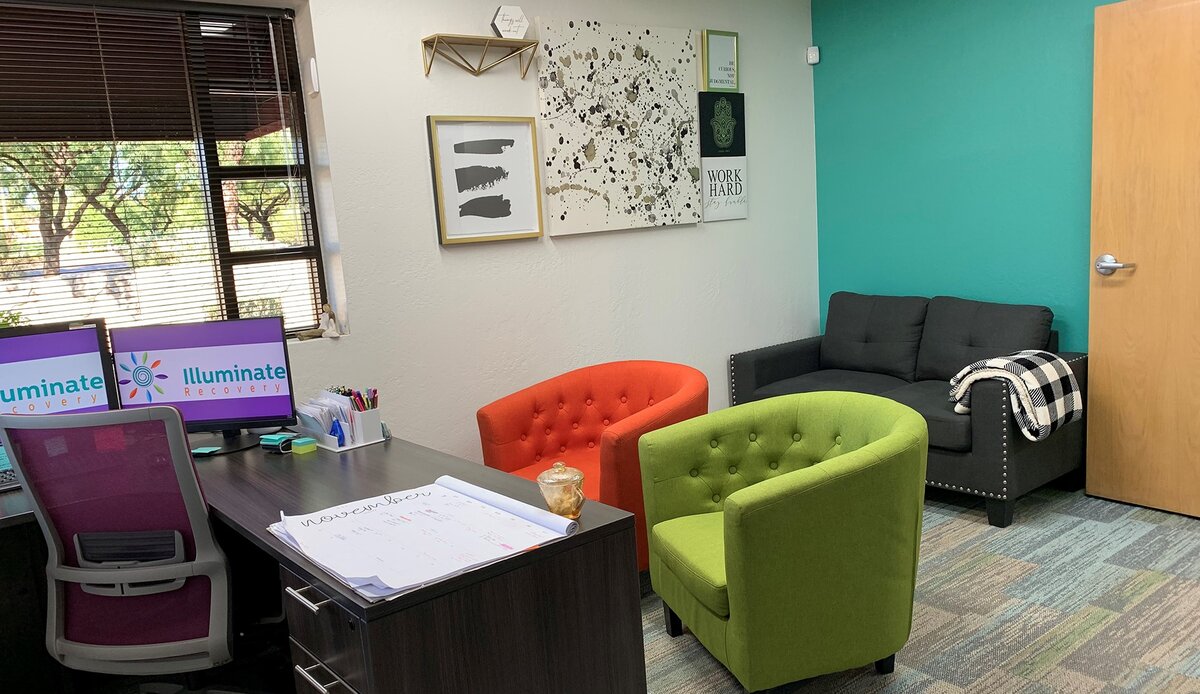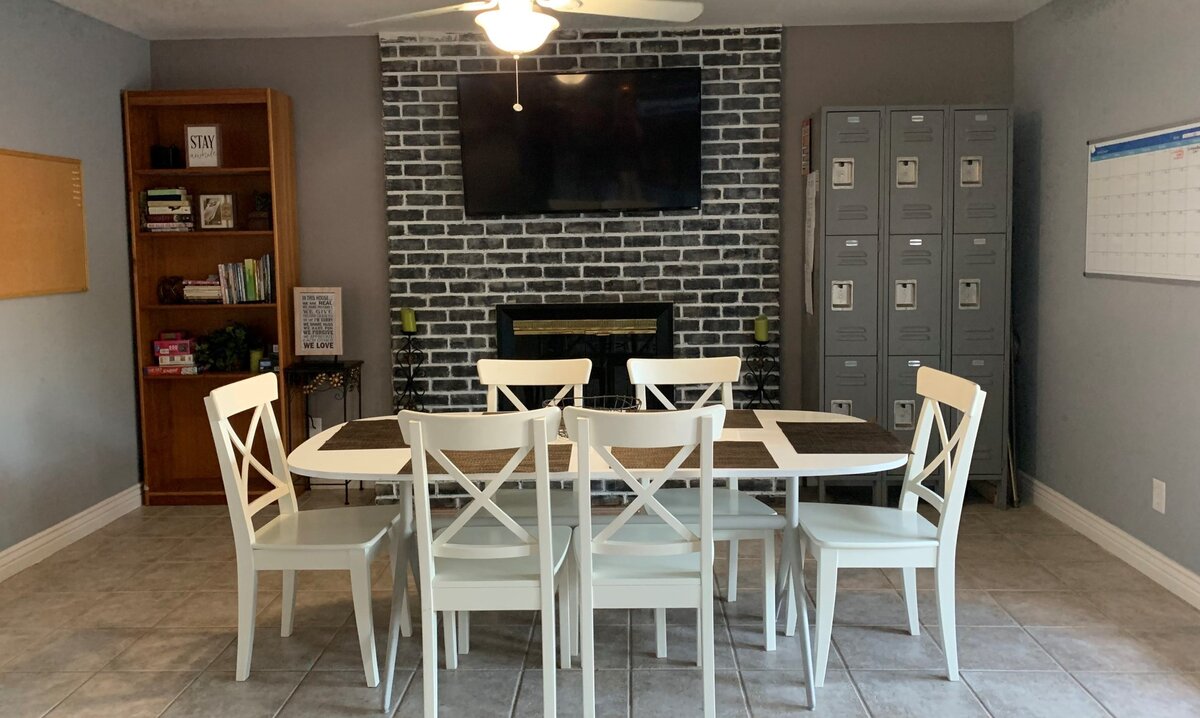There is no single treatment program that is right for someone recovering from substance abuse disorder. There is a path through the recovery process that is unique to each individual. Because every patient is dealing with different circumstances, they are given different levels of care when entering a treatment program. For example, an individual going through a detox will likely need full-time inpatient care with special medications. Whereas, someone who has already gone through a detox will require a lower level of medical care.
One person starting their journey to recovery may enter at a certain level of care and then require more intensive treatment. Another person might enter rehab at a higher state of care and soon make their way to a lower level. These levels of intensity when it comes to care and treatment is known as the “Continuum of Care.”
What Is The Full Continuum Of Care?
The term “Continuum of Care” refers to the different levels of care that can appropriately respond to a specific patient’s recovery needs at any given time. This continuum helps identify and classify people to make sure they get into the programs that are best suited to their physical and mental needs.
How severe the chemical dependency is, the type of chemical, the length of time of abuse, the age of the individual, other health issues, number of times through a treatment program and so many other variables play a role in determining the level of care needed.
The Continuum of Care also promotes the idea that a patent can move fluidly through a program instead of being assigned to a rigid system, while still receiving the fundamental services needed. For example, PHP and IOP are both outpatient levels of care, however, PHP is a more medically intensive program and a bigger commitment to therapeutic activities.
According to the American Society of Addiction Medication, there are five general stages to a Continuum of Care. Each level varies in the type and intensity of treatments.
These levels are:
- Level 0.5 This level consists of intervention services at the early stages of drug dependency. This can include educating people who might be at risk for substance abuse disorder or may be in the early stages of developing a drug dependency.
- Level I. This level consists mainly of outpatient services. This is the level people are at if their drug dependency is not as severe as others, or for those who have successfully made it through higher levels.
- Level II. This level can consist of partial hospital treatments and intensive outpatient care. This is where the terms PHP and IOP come into play. We will discuss PHP and IOP in more detail below.
- Level III. This level consists of patients who need to spend full-time in a hospital or treatment setting. They may have to spend many days in this setting, often weeks or months. These patients benefit from around-the-clock care. This is also the level of care a patient may enter if they have been through the rehabilitation program previously but have since relapsed.
- Level IV. This is the most intensive stage of continuum care, with patients requiring medically intensive, exclusively inpatient treatment. This is the level where people going through physical withdrawal fall into, and they may require special medications and emergency counseling services.
Navigating a patient through the Continuum of Care—no matter what level at which they entered—should be done by caring and compassionate health professionals so that every patient recovering from a drug dependency disorder receives the best care they can to live a healthy life free of relapse.
No matter what level a patient is at in the Continuum of Care, the goals are generally the same.
Some treatment recovery goals include:
- Achieving abstinence or working towards abstinence through Harm Reduction with Medication Assisted Treatment.
- Maintaining sobriety or a new medication regimen within a new lifestyle.
- Promoting activity in support groups and continued behavioral therapy.
- Promoting clients to forge new relationships with positive, supportive people.
- Promoting strong coping mechanisms and relapse prevention techniques.
- Identifying and creating a custom strategy for triggers.
What Does PHP and IOP Mean?
Some patients in recovery need less care to function without relapse than others. This is where PHP and IOP are so beneficial to the recovery process. A question that rehab facilities get asked often is, “Are IOP and PHP the same?”. While there are many similarities, these treatments are not the same but two different unique types of care that are not interchangeable.
Partial hospitalization is referred to as PHP care, and intensive outpatient care is referred to as IOP.
Let’s take a look at both in more detail.
Partial Hospitalization Program (PHP)

A Partial Hospitalization Program (PHP) is a very intensive treatment, but it does not require a patient to be in the rehab center for 24 hours a day. Unlike treatments on the higher levels of the continuum of care, where spending full-time in rehab is required for proper treatment, PHP gives a patient a strongly structured treatment plan in a rehab facility, but they are also able to leave the center as well. You can think of it as a sort of part-time hospital stay.
A person recovering from drug dependency who is getting PHP care will spend the day in the rehab facility, much as a full-time patient would. They would not just show up for individual treatment sessions but would spend their full day at the center. However, after the day is over, this patient is able to leave the facility and go to their own home. Some PHP programs do not require a person to be at the rehab center every day. Often, patients start out attending five to six days a week and then decrease over time.
PHP utilizes evidence-based drug dependency therapy. This can include individualized therapy, support groups, group therapy sessions, and other sessions preparing patients with the skills they need to prevent relapse. It is still intensive, but it offers flexibility at the same time. The patient is still able to spend time with loved ones, sleep in their own bed in the comfort of their own home, and may even be able to hold down a job, as long as it is in a safe environment.
Some of the benefits of a PHP care are as follows:
- A patient feels they have some freedom from being confined to a rehab center all day.
- A patient can spend time with their loved ones.
- A patient will have the same quality intensive personalized mental health care as full-time
- A patient can practice their coping skills in real world settings.
- This is a way to transition between full-time hospitalization care and strictly outpatient care.
- This type of care is less costly than full-time treatments.
PHP care can help a person in the recovery process gain confidence that they can make it in the real world without a relapse, all while having structured care that can address any triggers on the outside that may happen. Returning to life outside of a rehab center means that returning to the addictive behaviors can be enticing. PHP adds an extra level of security that outpatient behavior doesn’t have.
Intensive Outpatient Program (IOP)

An Intensive Outpatient Program (IOP) is for a patient recovering from substance abuse disorder who can spend more structured time away from in-house rehab settings, but still needs to receive intensive care. The flexibility of IOP means that it is much more likely for a patient to be able to hold down a job, meet family responsibilities, and to be ready to spend more time on their own with less risk of relapse. IOP is ideal for a person who has practiced coping skills in the outside world, understands their triggers and how to cope with them, and has support from positive individuals outside of the program.
IOP utilizes evidence-based care and is often effective when drug dependency occurs with other mental health problems. IOP treatments can also use coping mechanisms for recovery, such as mindfulness and meditation, interpersonal skills workshops, and even nutritional advice.
IOP is still an intensive treatment, and offers a patient with extensive behavioral health services, group therapies, and support resources.
Some of the benefits of IOP are the following:
- Patients are much more likely to be able to meet job requirements than someone in PHP.
- Patients can maintain positive daily routines that the patient implements for themselves.
- Patients can learn new hobbies and forge new friendships with people who share positive interests, instead of hanging out with old friends who may trigger a relapse.
- IOP treatment is often less expensive than PHP.
IOP does give more freedom than PHP, and while this may sound appealing to patients who want to rush their treatment to get to this level, it is imperative that someone who still requires PHP stays in PHP treatment.
How Do I Know What Level of Care I Need for Drug Dependence Recovery?
There are many ways a patient is assessed to determine what level of care is needed. This should be done by an experienced health professional who can take their own unique circumstances into account and determine what is the best place for them to start their new recovery journey.
Some of the assessment questions a professional may ask an individual include the following:
- How often were you using?
- In what situations were you most likely to use?
- What is your medical history?
- Have you been in rehab or drug dependency recovery programs before?
- Have you ever been diagnosed with mental health issues?
- Do you suspect you have any mental health issues?
- Have you experienced any trauma?
- Have you had any run-ins with the law?
- What is your current living situation?
It is important that a person be as honest as they can when being assessed. There are often feelings of guilt, and there might be a tendency for a patient to downplay their drug dependency or to hide facts that they are ashamed of. There is no judgement, and this assessment will put someone in the best place to be able to achieve abstinence.
It is imperative that you trust the healthcare professional to determine which level on the continuum you require. Sometimes it is hard to see where you should be on the Continuum of Care level through your own eyes.
Illuminate Recovery PHP and IOP Services in Scottsdale, Arizona
 If you are in the recovery process and do not require full-time rehabilitation care, then Illuminate Recovery has the PHP and IOP treatments that are right for you. We understand that there is a Continuum of Care and that no two patients are alike. Finding the right place in the level of treatment means that you will get the specialized therapy and treatments you need for wherever you are in your recovery journey.
If you are in the recovery process and do not require full-time rehabilitation care, then Illuminate Recovery has the PHP and IOP treatments that are right for you. We understand that there is a Continuum of Care and that no two patients are alike. Finding the right place in the level of treatment means that you will get the specialized therapy and treatments you need for wherever you are in your recovery journey.
With our caring and compassionate staff, we can help assess whether a Partial Hospitalization Program or Intensive Outpatient Program is the right choice for you. Both offer flexibility so that you can still meet other obligations in your life but will also give you the support and coping skills you need to not fall into relapse. If you are ready for outpatient treatment in Arizona for your substance abuse disorder, contact Illuminate Recovery today to begin your healing process.




